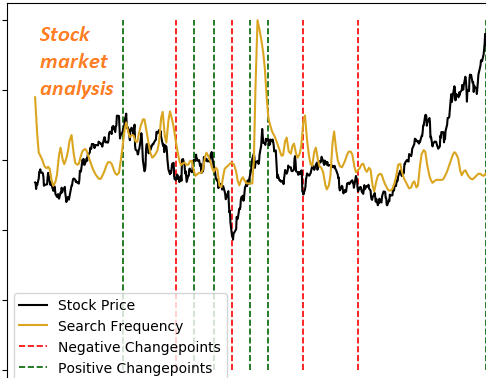Accounting professionals and auditors require to have an eager eye for detail and strong problem resolving and analytical abilities. You'll need to know basic accounting concepts, practices, and laws, which is typically acquired through a four-year accounting or related degree (What is a note in finance). Though you do not absolutely need one to get going, your job prospects will increase significantly if you have or are pursuing an accounting accreditation. Licensed Public Accounting Professional (Certified Public Accountant) is the most popular, but there are a variety of others depending on your specialized. As the name suggests, credit analysts analyze the credit and monetary data and history of people and companies to determine the degree of threat associated with lending them money or extending them credit.
Credit analysts primarily work for banks and charge card business but can also work for home loan, insurance coverage, and financial investment firms. You'll need strong decision-making, vital thinking, analytical, research study, and communication abilities in addition to a bachelor's degree in finance, accounting, or a related field. Some positions might also need a Chartered Financial Expert (CFA) credential. Brokers and traders purchase and sell securities like stocks, bonds, and other funds and do research study ahead of these trades. Nevertheless, while traders typically purchase or sell based on the desires of a manager of a portfolio or other investment fund, brokers are accountable straight to the financiers and might work for themselves or a brokerage or securities company.
Both positions need a four-year degree and certain Financial Market Regulatory Authority (FINRA) licenses to complete trades on behalf of others. Financial expert is a first finance task title for lots of people getting in the industry. Depending on where you work, you may provide guidance to companies and people making investment decisions; evaluate the efficiency of stocks, bonds, and other investments; examine existing and historical monetary information for the business you work for or others; and research possible financial investments. No matter the business, many monetary analysts are accountable for reporting their findings to others. You're probably to be working for large financial institutions consisting of financial investment firms and banks in New York City and other monetary centers, but you can also work as a corporate financial expert in other industries.
To start, you must have a bachelor's degree in financing or a related field. Pursuing a related internship will likewise assist you land an entry-level position. In order to progress as a monetary expert to a portfolio or fund management position, you might require a CFA accreditation donate my timeshare reviews or other FINRA license and an MBA. Many monetary organizations have two-year monetary expert programs for brand-new graduates. Some of these programs, like the one at Wells Fargo, are rotational, enabling you to discover various locations in the monetary industry to assist you choose where you desire to go with the rest of your profession.

Spending plan experts work throughout markets in personal business and for government offices and need to have strong analytical and interactions abilities to discuss choices to others in a company. Budget plan experts usually need a bachelor's degree in accounting or a comparable field, however some business will accept experience instead while others are searching for candidates with an MBA. In order to work in some government spending plan expert positions, you might need a Qualified Government Financial Supervisor credential from the Associate of Government Accountants. Personal monetary planners and consultants help individuals with their financial goals, including offering education on investments, picking financial investments on their behalf, managing their portfolios, preparing for long-term goals, and monitoring their financial resources.
What Is A Consumer Finance Company Fundamentals Explained

Financial consultants might advise customers when or for a brief time, whereas monetary organizers frequently have long continuing relationships with clients (which implies they require strong social abilities) and must be Licensed Financial Planners to utilize the job title. In addition to analytical skills and financial investment understanding, monetary planners need to likewise have an entrepreneurial mindset, Goodfellow states, given that even if you're working for another company, you're frequently developing a list of clients yourself. Risk specialists work for financial investment banks and companies, home mortgage and insurance coverage companies, and corporate loan providers, to name a few. Threat specialists use quantitative and qualitative techniques to analyze the danger to: Existing and prospective investments (in both domestic and foreign markets) Making capacities, The success of companies, Threat specialists require to have a strong ability to recognize potential problems and excellent inductive, deductive, and mathematical https://www.facebook.com/wesleyfinancialgroup/ thinking abilities.
A degree or focus in global company is likewise valuable for danger professionals. Financial examiners guarantee compliance with financing laws and regulations by examining balance sheets, financial records, and loan documentation. They generally work for banks and insurance provider or for the federal government. Federal government financial inspectors typically examine fraud or money laundering at banks and other companies, while those working for private business guarantee the stability and compliance of their own companies. Financial examiners require strong attention to information and analytical abilities and a four-year degree in accounting or another field (though a particular number of accounting classes is required for anybody wanting to work for the FDIC), and might think about getting a CPA credential to make them a more competitive prospect.
Quants mostly work for investment banks and hedge funds, but might likewise be employed by depository banks, trading companies, or fintech companies. To end up being a quant, you require to have top-level mathematical and other reasoning abilities. A lot of your work will be abstract instead of focused on a specific company or industry, and a lot more time will be invested on a computer system screen than interacting with colleagues. The wage for this position is high, but so is the barrier to entry: You'll need a master's degree or preferably a Ph, D in a quantitative field like mathematics, financing, statistics, or economics and have the ability to demonstrate a strong computer ability, or a master's degree or Ph, D in financial engineering or computational finance.
They compute the cost of those events and assist style insurance coverage policies and other designs. Actuaries mostly work for insurance provider however can likewise be used by financial investment companies, federal governments, or banks. Actuaries have a really high wage and the market for these tasks has a very high predicted development rate, Goodfellow states. The BLS approximates that the field will grow 18% from 2019 to 2029. The task is likewise reasonably low stress, specifically compared to other jobs of this wage level and in the finance market. You will need extremely strong mathematics and thinking abilities and a four-year degree in actuarial sciences, finance, accounting, or a related field.